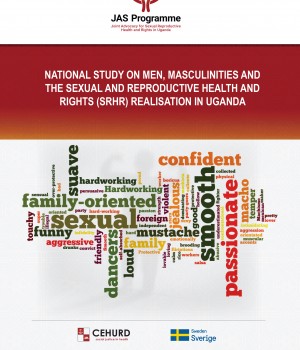- Version
- Download 113
- File Size 4.00 KB
- File Count 1
- Create Date November 16, 2022
- Last Updated July 3, 2023
National study on men, masculinities and the SRHR realisation in Uganda
During the past few decades, a rights-based approach to sexual and reproductive health has evolved globally, on the African content and locally. Scholars such as Ahlberg and Kulane (2011: 313) argue that “[the] rights approach stipulates that as individuals we have the right to the highest attainable standard of health, including the right to life and survival, the right to control our sexual and reproductive life, and the right to make reproductive decisions, including the number and spacing of our children, without interference or coercion”. The rights-based approach is rooted in the Universal Declaration of Human
Rights (UDHR), in particular, the idea that every individual is born with, and possesses the same rights regardless of the differences in gender, age, sexual orientation, social cultural identity and any other difference. However, it is notable that women and men cannot realise their SRHR without also realising
broader human rights because rights are inherently indivisible, interdependent and interrelated (Vienna Declaration and Programme of Action, 1993). In effect, realisation of SRHR requires broader conversations with individuals who claim the rights but also duty bearers, development actors and rights activists to ensure that every individual is afforded an opportunity to make rights claims, access and utilize SRHR services and human rights broadly.


